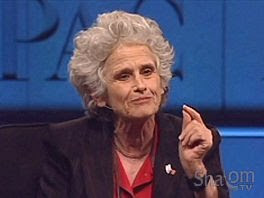 If I had known then what I know now, the Goldstone Report would have been a different document,’ writes Richard Goldstone in an attempt to retract his own UN report.
If I had known then what I know now, the Goldstone Report would have been a different document,’ writes Richard Goldstone in an attempt to retract his own UN report.
And yet I wonder: how different would it be? How different could it be? Goldstone is impressed with Israel dedicating some “significant resources to investigate over 400 allegations of operational misconduct in Gaza’, but it somehow leaves me bewildered.
Let us assume that at the time Goldstone and his team looked into the cold blooded murder of more than 1400 Palestinians, they would also be aware of an Israeli enquiry. What difference would it make?
‘For example,’ says Goldstone, ‘the most serious attack the Goldstone Report focused on was the killing of some 29 members of the al-Simouni family in their home. The shelling of the home was apparently (according to the Israeli investigation) the consequence of an Israeli commander’s erroneous interpretation of a drone image, and an Israeli officer is under investigation for having ordered the attack.’
For some peculiar reason, Goldstone allows Israel to reduce its institutional responsibility for a colossal war crime, into a chain of local errors, made by a few low rank officers who may, or may not, face criminal charges.
 One should remind Goldstone that the decision to use artillery and carpet bombardment in Gaza wasn’t taken by ‘some’ military commanders on the ground: these decisions were taken by a democratically elected Israeli cabinet. Furthermore, these decisions were supported at the time by 94% of the Israeli Jewish population.
The decision to rain barrages of white phosphorous over the most populated place on this planet was a strategic decision, and it was taken by Israeli military high command. The fact that Israel (may) sacrifice the military career of one Moishe’le or two Yank’le doesn’t change the validity of Goldstone original report at all; it only proves that Israel fails to take responsibility for its actions.
One should remind Goldstone that the decision to use artillery and carpet bombardment in Gaza wasn’t taken by ‘some’ military commanders on the ground: these decisions were taken by a democratically elected Israeli cabinet. Furthermore, these decisions were supported at the time by 94% of the Israeli Jewish population.
The decision to rain barrages of white phosphorous over the most populated place on this planet was a strategic decision, and it was taken by Israeli military high command. The fact that Israel (may) sacrifice the military career of one Moishe’le or two Yank’le doesn’t change the validity of Goldstone original report at all; it only proves that Israel fails to take responsibility for its actions.
Click to read more ...
 Thursday, April 14, 2011 at 3:41PM
Thursday, April 14, 2011 at 3:41PM  Gilad Atzmon
Gilad Atzmon  One of the main differences between my work and and the writings of other humanists within the peace movement is that I am willing to move beyond the political discussion -- I dig into the ideological and philosophical roots of the Jewish state, Jewish politics and Jewish identity politics. I look into the meaning of 'Jewishness.'
One of the main differences between my work and and the writings of other humanists within the peace movement is that I am willing to move beyond the political discussion -- I dig into the ideological and philosophical roots of the Jewish state, Jewish politics and Jewish identity politics. I look into the meaning of 'Jewishness.'











